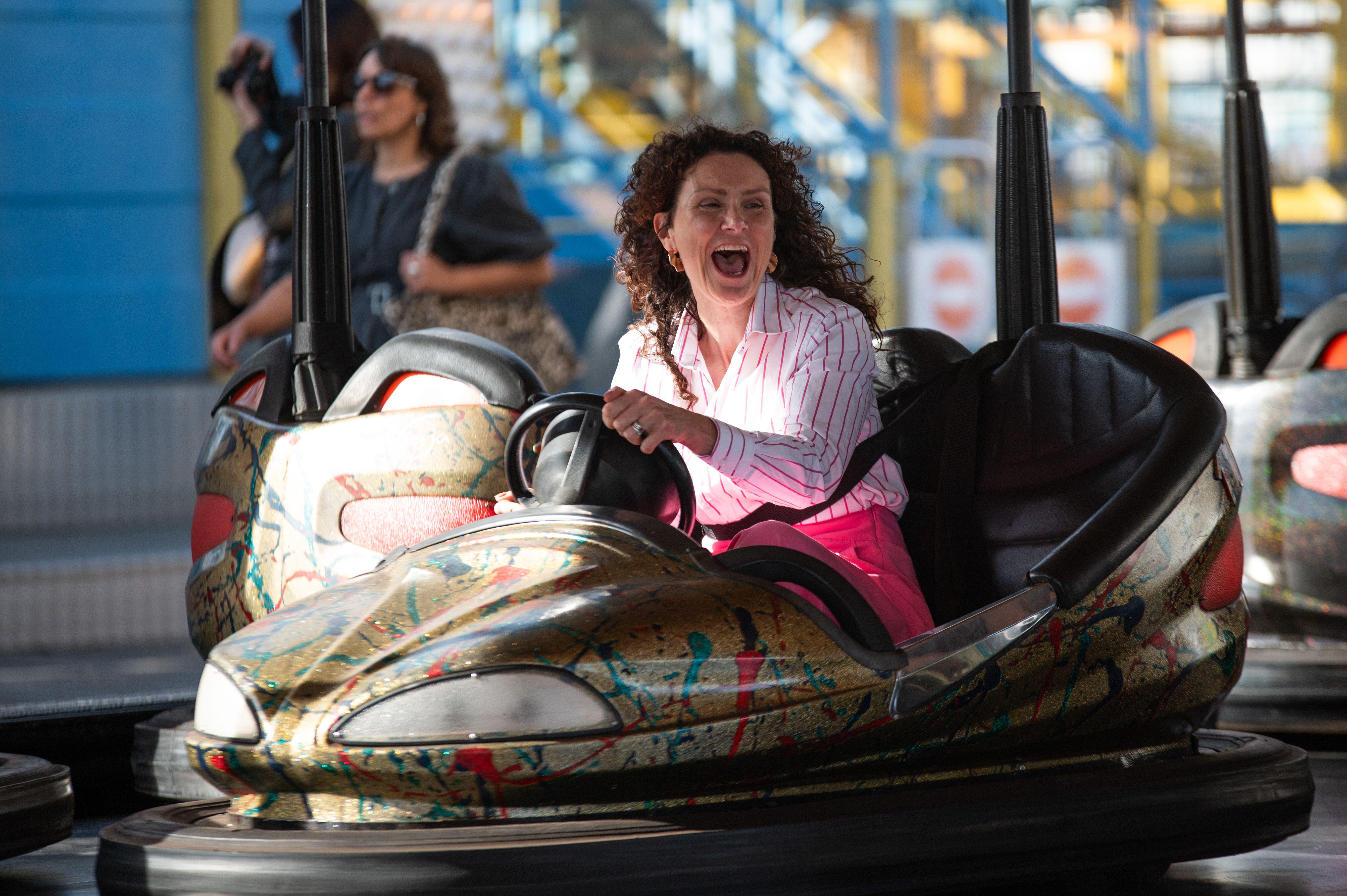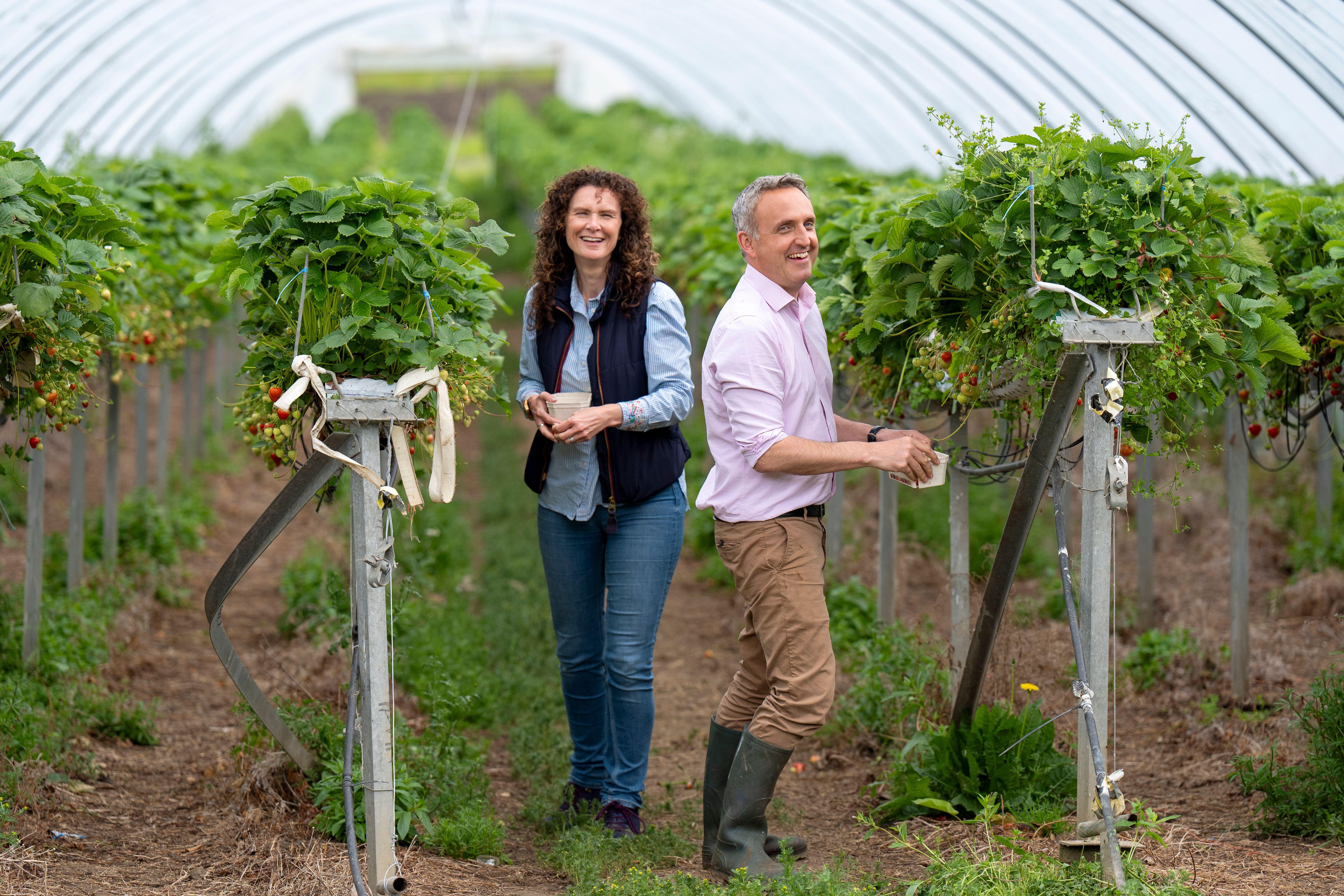Winning Mentality: Wendy Chamberlain and the challenge for the Scottish Liberal Democrats
Wendy Chamberlain suggests that her party is “used to peaks and troughs”.
Going by the tumult of the last 15 years, it is perhaps little wonder.
It is 14 years since the Liberal Democrats, who had been courted so keenly by Labour and the Tories before the election as probable kingmakers, ascended to form part of the coalition government headed by Conservative PM David Cameron. But by the next election, the Lib Dems were out of administration and out of favour, their numbers reduced from 57 to just eight as party giants like Charles Kennedy and Vince Cable lost their seats.
Come 2019, the party's then-leader Jo Swinson, her wagon hitched tightly to a pro-Remain, anti-Brexit message, declared she was a “candidate to be prime minister” before suffering a humiliation against an SNP surge that cost her not only her seat but her leadership role in what was another bruising night for the party.
But now things are different. The Lib Dems celebrated its largest ever general election win this summer, its bloc growing from 11 to 72 overnight thanks to the votes of 3.5 million people. The new intake includes people like Dr Roz Savage, the only woman to have rowed solo across the Atlantic, Pacific and Indian oceans and a holder of four Guinness World Records. “We are the biggest third party ever,” says Chamberlain. “It feels like both the media and parliament is getting used to that reality.”
And with a Scottish Parliament election creeping ever closer, Chamberlain – deputy leader of the Scottish Liberal Democrats, chair and chief whip of the Lib Dems at Westminster and MP for North East Fife – has her eyes on Holyrood. “Of course we are looking to 2026,” she says, “but I’ve been looking at it for some time.”
Chamberlain’s party once formed part of the Scottish Executive, with Jim Wallace serving as deputy first minister to Donald Dewar’s FM, then temporarily taking on the top job after Dewar’s death. These days the party has four MSPs, and was knocked into fifth place behind the Scottish Greens back in 2016.
The renewed visibility that comes with being third-placed at Westminster – more slots at Prime Minister’s Questions, places on every select committee, increased media appearances – Chamberlain suggests, puts the party in a far better position to win over voters in Scotland. And there is notable debate about whether the Lib Dems will, again, be kingmakers in 2026. “There’s no doubt that the general election success gave us a degree of credibility,” she says.
“How you win is actually people thinking you can win in the first instance.”
Chamberlain – a former police officer and HR professional – won the award for Best Scot at Westminster in Holyrood’s annual political awards this year. In the last parliamentary session, she not only succeeded in changing the law for those with caring responsibilities, her Carer’s Leave Act granting them new employment rights, she also changed the rules for MPs. It was Chamberlain who tabled the amendment to the government’s motion on standards that, backed across the House, meant MPs accused of misconduct could no longer take part in votes pertaining to their own cases.
It was a motion triggered by the case of Owen Paterson, who as a Conservative MP voted against his own suspension from the Commons in 2021 – after it was found that he had broken lobbying rules for MPs. “After years of sleaze and scandal, we’ve finally taken a vital step to clean up our politics,” Chamberlain said at the time. “Today makes sure MPs no longer get to mark their own homework.”
“It wasn’t about the guilt or innocence, it was about safeguarding,” she says now. “That was quite a moment in the chamber when we realised we had won, and we had won by one vote, and everybody was looking at me.”
After all of that, it might be suspected that Chamberlain – who has been her party’s spokesperson for Scotland, Wales, Northern Ireland, international development, the Cabinet Office and work and pensions – knows all there is to know about the House. Not so, she says – and there is plenty to learn for her whole group. “Only five of us have any experience of being the third party, the rest of us were elected in 2017 or afterwards, so, not to be Donald Rumsfeld about it, but you don’t know what you don’t know. I’m finding out all the time that there are things that we have responsibilities for.”
Greenock-born Chamberlain, a lover of Cadbury’s Crème Eggs who once performed in Little Shop of Horrors at the Fringe, is certainly feeling the responsibility now placed on her shoulders. She is keenly aware of the need to provide guidance for those new to parliament. “It’s not all the dark arts, House of Cards, Francis Underwood stuff,” she says.

Foot to the floor: Chamberlain at the Liberal Democrat conference | Alamy
And she feels that in this parliament, things are very different to the last. “It’s not just about the number of Liberal Democrats, it just does feel a very different place,” she tells Holyrood the week Westminster has returned from its conference recess. “This feels like our first proper week back; it still feels like we are in a degree of flux. Part of that is that the government hasn’t got off to a great start and you can see there’s a real sense of discomfort and not feeling great about some of the decisions and missteps.”
She's referring to Keir Starmer facing criticism over the acceptance of suits and event tickets worth thousands of pounds while keeping the two-child cap on benefits and cutting winter fuel payment eligibility for pensioners.
Chamberlain was quizzed on her own record of interests while appearing on Question Time in Dundee, where host Fiona Bruce asked her about her acceptance of tickets to golf’s Open Championship and the Scottish Baftas. “I’m the MP for St Andrews,” Chamberlain said. “Golf is one of the most significant tourism attractions in my seat. I also sit on the links trust that runs the golf course in St Andrews, so I do think it’s appropriate for me to attend.
“The Media Bill was going through parliament, but as well as that the Scottish Affairs Committee, which I sat on, was looking at public sector broadcasting in Scotland, so what I would say was I was quite choiceful about the things I accept and attend.”
“I think I can defend that to my constituents,” she says on reflection. “I didn’t even watch that much golf; I was busy talking to people.”
But the mood in the studio that night, on which she shared the panel with education secretary Jenny Gilruth, Scottish Secretary Ian Murray and Andrew Bowie MP, took Chamberlain by surprise. “It was more ‘a plague on all your houses’ from the audience than I have felt before,” she says, which she attributes in part to a UK Labour government which has angered voters over its donations and benefits records.

Launching the Scottish Liberal Democrat manifesto in June with Alex Cole-Hamilton | Alamy
Still, Chamberlain is used to a “feisty” room. That’s how she describes the atmosphere at many sessions of the Scottish Affairs Committee, which until recently was chaired by long-serving SNP MP Pete Wishart, and is now headed by Labour’s Patricia Ferguson. Did Chamberlain enjoy her time on that panel? “Yes and no,” she says.
“It could be quite feisty and that was not necessarily helped by personnel. The dynamic did change when Douglas [Ross] joined, but I did admire the way he managed to pick really topical things that were newsworthy. And, on the other hand, we never published a committee report that wasn’t unanimous.
“One of the things we discussed in the 25 years of devolution inquiry was that in the early stages [of devolution], the majority of parliamentarians in Holyrood had also been in Westminster, whereas there’s quite clearly been a separation since. That understanding of how both institutions work amongst elected representatives is maybe not what it was in the past.”
With that divergence in mind, it is perhaps surprising that both the Scottish and UK parliaments will now consider legislating on assisted dying. While two previous attempts by MSPs failed, Chamberlain’s Lib Dem colleague Liam McArthur has brought forward his own proposals following a public consultation which drew more than 14,000 responses. Though concerns were raised about ethics and safeguarding, three quarters of responses were supportive of the draft bill. Meanwhile, Labour MP Kim Leadbeater is using her Private Members' Bill to propose giving terminally-ill people in England and Wales the right to end their lives.
Chamberlain, whose own Private Members' Bill seeks to address limitations on charity lotteries, counts Leadbeater as a friend. But her mind is not made up on whether to back this law change. “I feel quite conflicted about it,” she says. “My general view is to be supportive, but I think it’s very easy to talk about this area in general terms when the detail, the scrutiny of the legislation, is vital. I couldn’t support a bill that didn’t have what I consider the necessary safeguards in place.”
Has Chamberlain spoken with McArthur about his bill? “He’s updated us,” she says. “I think it’s been interesting how more people are saying how they feel. This is amazing, that we should be asking a question on a subject like this. Whether there’s a mood and a shift, it’s right that we are having the discussion. It’s something I get a lot of campaign casework about, usually from those who are supportive.”
She points to Andrew O’Hagan’s Mayflies, which was adapted for the BBC and starred fellow Greenockian Martin Compston as a man coming to terms with his friend’s terminal cancer and wish to end his life in Switzerland. “I thought it was really good,” Chamberlain comments, but “there was less complexity in that: a guy in his 40s who can communicate what he wants, no prognosis other than terminal. Then, there are others. Life isn’t black and white like that.
“I understand that public sentiment suggests broadly that the general population are supportive, but one of the reasons we are elected representatives is that we do the heavy lifting on issues like this; we do the legislating and the fine detail and that’s really important.
“Broad brushstroke policy discussion does not properly reflect the complexity.”
Chamberlain wishes there was more “nuance” in the way we talk not only about policy issues, but politics in general. Take the interest in Scottish budget discussions, for example, and who might do a deal with the SNP to get the financial plan over the line. “There’s a bit of a frenzy around the negotiations, but the reality is that’s how the Scottish Parliament is supposed to work.
“It’s sometimes like we are infected by the culture of first-past-the-post and any discussion is seen as some kind of huge political intrigue. But we are seeing a lot more voter volatility; if anything, the message is don’t take voters for granted.”
On that basis, what is the biggest obstacle to success for the Scottish Lib Dems in 2026? “My instinct is to say ourselves,” Chamberlain answers. “I sometimes joke we don’t need any help. But I think it’s that challenge, that credibility, people thinking we can win.”
Holyrood Newsletters
Holyrood provides comprehensive coverage of Scottish politics, offering award-winning reporting and analysis: Subscribe